Smart city design companies specialize in creating sustainable, connected, and technology-driven urban environments. They integrate AI, IoT, and data analytics into city planning, focusing on efficient transportation, energy management, public spaces, and infrastructure. Their goal is to design cities that are resilient, efficient, and optimized for future growth.

1. AI Superior
At AI Superior, we specialize in AI-driven smart city design, integrating advanced technologies to create intelligent, sustainable, and efficient urban environments. Based in Germany, we collaborate with governments, urban planners, and private enterprises to develop AI-powered infrastructure, optimize mobility, enhance public services, and improve city-wide security.
Our team of Ph.D.-level data scientists and engineers designs tailored smart city solutions using AI, IoT, and big data analytics. From predictive urban planning to AI-driven energy management, we help cities implement scalable, technology-driven designs that enhance livability and operational efficiency.
Key Highlights:
- AI-powered urban planning and smart city architecture design
- Predictive analytics for mobility, traffic flow, and public transportation optimization
- Intelligent energy management and smart grid solutions for sustainability
- AI-driven public safety and surveillance systems for enhanced security
- Digital twin and geospatial analytics for infrastructure development
- IoT-enabled smart city automation for seamless city operations
- Research and innovation in AI solutions for urban transformation
Services:
- Smart City Master Planning & AI Integration
- AI-Powered Mobility & Traffic Management
- Urban Data Analytics & Digital Twin Solutions
- Public Safety & AI-Driven Security Solutions
- Sustainable Energy & Smart Grid Design
- IoT & Connected Infrastructure
- R&D in AI for Smart Cities
Contact Information:
- Website: aisuperior.com
- Contact Email: [email protected]
- LinkedIn: linkedin.com/company/ai-superior
- X (Twitter): x.com/aisuperior
- Address: Robert-Bosch-Str.7, 64293 Darmstadt, Germany
- Phone Number: +49 6151 3943489
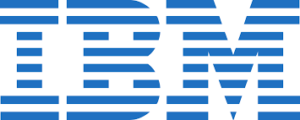
2. IBM
IBM leverages AI and big data to tackle urban challenges like traffic congestion and energy waste. Its Intelligent Operations Center aggregates real-time data from sensors and civic databases, enabling dynamic responses to emergencies and resource shortages. Machine learning models forecast demand patterns for utilities and transportation.
The company’s hybrid cloud solutions empower cities to modernize aging infrastructure without disrupting services. IBM also partners with governments to deploy blockchain for transparent public records and decentralized energy trading platforms.
Key Highlights:
- AI-driven urban analytics
- Hybrid cloud infrastructure
- Blockchain for civic transparency
- Real-time emergency response systems
- Predictive utility management
- Legacy system modernization
Services:
- Traffic flow optimization
- Energy efficiency auditing
- Water leak detection
- Waste management analytics
- Citizen engagement platforms
- Cybersecurity frameworks
Contact Information:
- Website: ibm.com
- LinkedIn: linkedin.com/company/ibm
- X (Twitter): x.com/ibm
- Instagram: instagram.com/ibm
- Address: 1 New Orchard Road, Armonk, New York, USA
- Phone: +1 800 426 4968

3. Hitachi
Hitachi’s Lumada platform merges IoT and video analytics to enhance public safety and operational efficiency. Its sensor networks monitor air quality, traffic, and energy consumption, feeding data into AI models that optimize citywide logistics. The company also designs EV charging ecosystems and smart grid resilience frameworks.
By collaborating with municipalities, Hitachi tailors solutions for disaster preparedness and sustainable urban growth. Its adaptive control systems dynamically adjust street lighting, public transit schedules, and energy distribution based on real-time demand.
Key Highlights:
- IoT-powered public safety systems
- EV charging infrastructure
- Disaster resilience planning
- Adaptive energy grids
- AI-driven logistics optimization
- Video analytics integration
Services:
- Air quality monitoring
- Fleet management solutions
- Smart lighting controls
- Renewable energy integration
- Emergency response coordination
- Data privacy compliance
Contact Information:
- Website: hitachi.com
- X (Twitter): x.com/HitachiGlobal
- Facebook: facebook.com/hitachi.global
- YouTube: youtube.com/hitachibrandchannel
- Instagram: instagram.com/hitachi
- LinkedIn: linkedin.com/company/hitachi
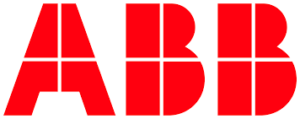
4. ABB
ABB focuses on electrification and automation for sustainable cities. Its smart grids balance renewable energy sources with traditional power systems, minimizing outages and carbon emissions. The company’s EV charging stations support high-speed connectivity and bidirectional energy flow for vehicle-to-grid applications.
ABB’s robotics and AI tools enhance industrial efficiency in urban zones, from automated warehouses to intelligent water treatment plants. Its modular designs allow scalable deployment of microgrids and district heating networks.
Key Highlights:
- Bidirectional EV charging
- Industrial automation robotics
- Modular microgrid solutions
- Renewable energy balancing
- Water treatment automation
- Scalable district heating
Services:
- Grid stability management
- EV infrastructure deployment
- Industrial process automation
- Water purification systems
- Building energy optimization
- Remote asset monitoring
Contact Information:
- Website: abb.com
- Facebook: facebook.com/ABB
- LinkedIn: linkedin.com/company/277579
- X (Twitter): x.com/ABBgroupnews
- Instagram: instagram.com/abbgroup
- YouTube: youtube.com/user/abb

5. Athena SmartCities
Athena SmartCities develops interoperable platforms to unify fragmented urban systems. Its middleware connects transportation, energy, and emergency services via standardized APIs, enabling holistic data sharing. AI algorithms prioritize flood prevention and affordable housing projects using geospatial and demographic data.
The startup emphasizes citizen-centric design, deploying mobile apps for real-time service feedback and community safety alerts. Athena’s tools also streamline permit approvals and construction planning for municipal governments.
Key Highlights:
- API-driven system integration
- Flood risk prediction models
- Affordable housing analytics
- Citizen feedback platforms
- Geospatial data utilization
- Permit management automation
Services:
- Multi-system interoperability
- Emergency response coordination
- Urban planning simulations
- Public engagement tools
- Construction workflow automation
- Climate resilience consulting
Contact Information:
- Website: athena.city
- Email: [email protected]
- Facebook: facebook.com/AthenaSmartCities
- LinkedIn: linkedin.com/company/athena-smart-cities
- Phone: +1 (832) 936 – 9898

6. Smart City Factory
Smart City Factory delivers edge computing solutions to enhance urban infrastructure responsiveness. Its modular frameworks enable cities to deploy sensor-driven lighting, waste management, and parking systems that adapt to real-time conditions. The platform aggregates data from distributed devices, improving decision-making for municipal planners.
The company emphasizes cost-effective scalability, allowing incremental upgrades to existing infrastructure. Its tools bridge gaps between legacy systems and cutting-edge IoT applications, fostering seamless transitions to smarter urban ecosystems.
Key Highlights:
- Edge computing expertise
- Modular infrastructure frameworks
- Real-time parking optimization
- Sensor-controlled lighting networks
- Legacy system compatibility
- Incremental scalability
Services:
- Smart lighting installations
- Parking occupancy analytics
- Waste collection routing
- Edge data processing platforms
- Urban IoT integration
- Municipal planning support
Contact Information:
- Website: smart-city-factory.com
- Email: [email protected]
- Phone: +49 911 300 829-0
- LinkedIn: linkedin.com/company/smartcityfactory
- Instagram: instagram.com/smart.city.factory
- Address: Am Studio 2, 12489 Berlin, Germany
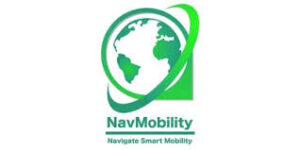
7. NavMobility
NavMobility creates precise digital twins of cities using LiDAR and AI to simulate traffic and infrastructure changes. These models help planners test scenarios like congestion pricing or public transit expansions before implementation. The technology also assesses environmental impacts, such as emission reductions from proposed policies.
By offering granular spatial analytics, NavMobility aids in optimizing pedestrian pathways, cycling lanes, and freight corridors. Its simulations reduce risks in urban development projects while aligning with sustainability goals.
Key Highlights:
- LiDAR-based digital twins
- Traffic pattern simulation
- Emission impact analysis
- Pedestrian pathway optimization
- Freight corridor planning
- Risk mitigation tools
Services:
- Urban digital twin development
- Traffic management simulations
- Environmental impact assessments
- Infrastructure change modeling
- Public transit planning
- Stakeholder collaboration platforms
Contact Information:
- Website: navmobility.ca
- Email: [email protected]
- Phone: +1 (289) 943-6132

8. Kentyou
Kentyou addresses IoT fragmentation by unifying sensor data from energy, transportation, and environmental systems into a single dashboard. Its Eclipse SensiNact platform enables cities to correlate datasets, such as air quality metrics with traffic flows, for actionable policy adjustments.
The startup prioritizes open-source flexibility, allowing municipalities to customize analytics without vendor lock-in. Solutions include predictive maintenance alerts for infrastructure and automated reporting for regulatory compliance.
Key Highlights:
- IoT data unification
- Cross-system correlation analytics
- Open-source platform
- Predictive maintenance alerts
- Regulatory compliance automation
- Vendor-agnostic integration
Services:
- Sensor data aggregation
- Air quality monitoring
- Traffic flow analytics
- Energy consumption tracking
- Predictive infrastructure maintenance
- Compliance reporting tools
Contact Information:
- Website: kentyou.com
- Email: [email protected]
- X (Twitter): x.com/Kentyou_Company
- LinkedIn: linkedin.com/company/kentyou
- Address: 93 Cours Berriat, 38000 Grenoble, France
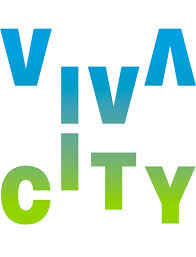
9. VivaCity
VivaCity uses AI-powered sensors and computer vision to analyze urban mobility patterns, such as pedestrian flows, cycling routes, and vehicle traffic. Its data-driven models help cities design safer intersections, optimize public transit networks, and implement congestion-reduction strategies like dynamic toll pricing.
The platform generates actionable insights for long-term infrastructure planning, prioritizing equity and accessibility. VivaCity also measures the impact of policy changes, ensuring alignment with sustainability and economic growth targets.
Key Highlights:
- AI-based traffic analytics
- Pedestrian safety optimization
- Dynamic toll pricing support
- Equity-focused planning tools
- Public transit efficiency models
- Policy impact assessment
Services:
- Traffic flow monitoring
- Cycling infrastructure design
- Public transit route optimization
- Congestion pricing simulations
- Pedestrian safety audits
- Data-driven policy recommendations
Contact Information:
- Website: vivacitylabs.com
- Email: [email protected]
- Address: Unit 5 – 6, 3 Haberdasher Street, London N1 6ED, United Kingdom
- LinkedIn: linkedin.com/company/vivacity-labs
- X (Twitter): x.com/VivacityLabs
- YouTube: youtube.com/@vivacity9667
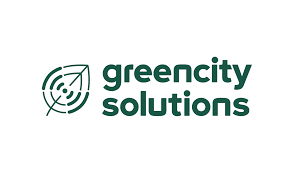
10. Green City Solutions
Green City Solutions combats urban pollution with bioengineered installations like the CityTree, a vertical moss filter that absorbs pollutants equivalent to 275 trees. These structures also reduce urban heat island effects and enhance biodiversity through integrated plant ecosystems.
The company’s modular designs adapt to dense urban environments, offering scalable solutions for air quality improvement. Sensors embedded in each unit monitor filtration efficiency and environmental impact in real time.
Key Highlights:
- Moss-based air purification
- Heat island mitigation
- Biodiversity enhancement
- Modular, scalable designs
- Real-time pollution monitoring
- Low-maintenance installations
Services:
- Air quality remediation
- Green wall installations
- Environmental impact analytics
- Urban cooling solutions
- Pollution data reporting
- Biodiversity consulting
Contact Information:
- Website: mygcs.de
- Email: [email protected]
- Phone: +49 33763 222144
- Address: Fernstraße 27, 15741 Bestensee, Germany
- Facebook: facebook.com/mygcs
- YouTube: youtube.com/channel/UC2lCPB5t5TuN8QL1egOBkNg
- X (Twitter): x.com/mycitytree
- Instagram: instagram.com/green_city_solutions
- LinkedIn: linkedin.com/company/greencitysolutions

11. Ericsson
Ericsson enables smart cities through 5G connectivity and IoT networks, supporting applications like autonomous vehicles and smart grids. Its network solutions ensure low-latency communication between devices, critical for real-time traffic management and emergency response systems.
The company collaborates with municipalities to deploy energy-efficient infrastructure, such as smart meters and connected streetlights. Ericsson’s platforms also facilitate citizen engagement via mobile apps for public service access.
Key Highlights:
- 5G-enabled IoT networks
- Autonomous vehicle support
- Low-latency communication
- Energy-efficient infrastructure
- Citizen engagement tools
- Emergency response integration
Services:
- 5G network deployment
- Smart grid connectivity
- Traffic management systems
- Public safety communication
- Smart meter installations
- Mobile service platforms
Contact Information:
- Website: ericsson.com
- Phone: +46 10 719 00 00
- Facebook: facebook.com/Ericsson
- LinkedIn: linkedin.com/company/ericsson
- X (Twitter): x.com/ericsson

12. Terranova
Terranova focuses on smart utility management, optimizing water, gas, and electricity distribution through AI-driven analytics. Its metering systems detect leaks, predict demand surges, and automate billing processes to reduce operational costs.
The company’s cloud-based dashboards provide utilities with real-time insights into resource consumption, enabling proactive maintenance and sustainable allocation strategies.
Key Highlights:
- Utility leak detection
- Demand prediction algorithms
- Automated billing solutions
- Cloud-based resource monitoring
- Proactive maintenance tools
- Cross-utility interoperability
Services:
- Smart meter deployments
- Water distribution optimization
- Energy consumption analytics
- Gas pipeline monitoring
- Billing automation
- Cloud data management
Contact Information:
- Website: terranovasoftware.eu
- Email: [email protected]
- LinkedIn: linkedin.com/company/terranova-software
- YouTube: youtube.com/@terranovasoftware575
- Instagram: instagram.com/terranovasoftware
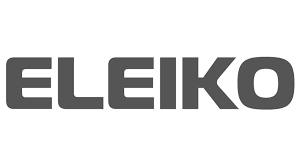
13. Eliko
Eliko develops IoT solutions for precision indoor positioning and asset tracking in smart buildings. Its machine vision systems enhance security and operational efficiency in industrial complexes, airports, and hospitals.
The company’s wireless sensor networks support real-time environmental monitoring, including temperature, humidity, and air quality, ensuring compliance with health and safety standards.
Key Highlights:
- Indoor positioning technology
- Machine vision systems
- Wireless sensor networks
- Environmental compliance tools
- Asset tracking precision
- Industrial automation integration
Services:
- Indoor navigation systems
- Industrial security solutions
- Environmental monitoring
- Asset management platforms
- Machine vision analytics
- IoT sensor deployments
Contact Information:
- Website: eliko.tech
- Email: [email protected]
- YouTube: youtube.com/@eliko7954
- LinkedIn: linkedin.com/company/eliko-competence-centre
- Address: Aiandi 13/1, Tallinn 12918, Estonia

14. Ubicquia
Ubicquia transforms streetlights into multi-purpose smart hubs equipped with Wi-Fi, 5G, and environmental sensors. Its cost-effective retrofitting enables cities to expand IoT networks without new infrastructure investments.
The platform supports applications like gunshot detection, air quality monitoring, and parking management, enhancing public safety and operational efficiency.
Key Highlights:
- Streetlight retrofitting
- Multi-sensor integration
- Gunshot detection systems
- 5G/Wi-Fi deployment
- Parking occupancy monitoring
- Low-cost scalability
Services:
- Smart streetlight installations
- Public safety sensors
- Air quality monitoring
- Parking management tools
- Broadband connectivity
- IoT network expansion
Contact Information:
- Website: ubicquia.com
- Facebook: facebook.com/ubicquia
- LinkedIn: linkedin.com/company/ubicquia-llc
- X (Twitter): x.com/ubicquia
- YouTube: youtube.com/channel/@ubicquia1780

15. Breeze Technologies
Breeze Technologies deploys hyperlocal air quality sensors that measure pollutants like NO2 and PM2.5 at street level. Its analytics platform identifies pollution sources and recommends targeted interventions, such as green corridors or traffic rerouting.
The company’s open data portal enables citizens and policymakers to track air quality improvements in real time.
Key Highlights:
- Hyperlocal pollution sensing
- Source identification algorithms
- Green corridor planning
- Open data transparency
- Real-time dashboards
- Policy recommendation engine
Services:
- Air quality sensor networks
- Pollution source analytics
- Environmental policy consulting
- Public health impact assessments
- Data visualization tools
- Community engagement platforms
Contact Information:
- Website: www.breeze-technologies.de
- Email: [email protected]
- Phone: +49 40 766292262
- Address: Harburger Schloßstraße 6-12, 21079 Hamburg, Germany
- Facebook: facebook.com/breezetechnologies
- X (Twitter): x.com/projectbreeze
- LinkedIn: linkedin.com/company/breeze-technologies
![]()
16. Siemens
Siemens specializes in integrating IoT and automation to optimize urban infrastructure. Its digital twin technology simulates energy grids, transportation networks, and public utilities, enabling predictive maintenance and data-driven decision-making. The company’s cloud-based platforms streamline resource allocation for water, electricity, and waste systems.
Siemens prioritizes interoperability, ensuring seamless connectivity between legacy systems and emerging technologies. Projects include AI-driven traffic management and renewable energy microgrids, reducing carbon footprints while enhancing operational efficiency for municipalities.
Key Highlights:
- Global leader in IoT-enabled infrastructure
- Advanced digital twin modeling
- Predictive maintenance via AI analytics
- Cloud-based resource management
- Focus on renewable energy integration
- Cross-system interoperability
Services:
- Smart grid design
- Public transit optimization
- Energy consumption analytics
- Water management systems
- Building automation solutions
- Cybersecurity for critical infrastructure
Contact Information:
- Website: siemens.com
- X (Twitter): x.com/siemens
- LinkedIn: linkedin.com/company/siemens
- Facebook: facebook.com/Siemens
- YouTube: youtube.com/@siemens
- Instagram: instagram.com/siemens
Conclusion
Smart city design is crucial for creating future-ready urban environments that balance sustainability, technology, and efficiency. Leading firms in this sector are transforming city planning by integrating AI, IoT, and data analytics to develop smart infrastructure, optimize resource use, and enhance the quality of life. As urbanization continues, these design strategies will be essential in shaping resilient and efficient cities for the future.
FAQs
What do smart city design companies do?
They create urban layouts integrating AI, IoT, and data-driven infrastructure to improve transportation, sustainability, and public services.
Why is smart city design important?
Smart design improves city efficiency, reduces environmental impact, enhances mobility, and ensures sustainable urban growth.
What technologies are used in smart city design?
AI, IoT, digital twins, big data, GIS mapping, and smart grids are key technologies for designing smart urban spaces.
What challenges do smart city designers face?
Challenges include balancing technology with sustainability, high infrastructure costs, regulatory compliance, and integration with legacy systems.
Who benefits from smart city design?
Citizens, governments, businesses, and service providers benefit from improved infrastructure, enhanced mobility, and optimized resource management.
What is the future of smart city design?
The future includes AI-driven urban planning, autonomous transportation, climate-adaptive infrastructure, and energy-efficient smart buildings.
